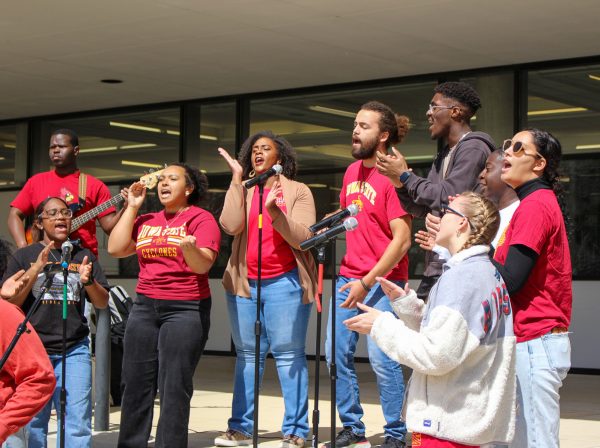Activists for transgender inclusion in sports speak at Iowa Safe Schools event
January 26, 2021
Iowa Safe Schools and One Iowa held an important event over Zoom on Tuesday giving information and support to transgender athletes and others who want to be better informed on the issue of transgender inclusion in sports.
The event was led by speakers Chris Mosier and Anne Lieberman.
Mosier is an athlete and coach, and he is also the founder of TransAthlete.com. He became the first trans athlete to compete in the Olympic Trials in the gender with which they identify, and he also became the first openly trans man to make a U.S. national team, according to oneiowa.org.
Mosier also has helped lead the charge for sweeping changes for trans athletes at all levels including high school, college and professional.
Lieberman is a social justice strategist and athlete who has spent years helping lead the fight advancing LQBTQIA+ rights and gender equality globally, according to oneiowa.org.
After starting the discussion off with introductions, definitions of important terms and why it was important to know those definitions, Lieberman and Mosier went over information pertaining to athletics, and Lieberman specifically brought up a report called “Chasing Equity” that was made by the Women’s Sports Foundation.
“That report outlined in great detail and I believe 36 different policy recommendations how we can really protect and promote women’s sports, and wouldn’t you be just shocked to know that trans athletes are not a threat or a problem anywhere in that report,” Lieberman said. “… These legislators might say that they are for protecting and promoting women’s sports, but we’re not addressing so many different aspects that have been an issue over the years for female athletics.”
While states have been changing laws regarding trans athletes, it hasn’t always been in a positive direction, with many states focusing on medical transitioning, testosterone and other factors that lead to misinformation to make conclusions on the subject.
The issue has been politicized as well, and Lieberman talked about what that has done for the media coverage around transgender inclusion in sports.
“Our colleagues at Media Matters, which is a fantastic organization, released a study late last year that said that right-wing articles about trans athletes outperformed all other stories on trans issues,” Lieberman said. “… We really can’t talk about trans inclusion in sports without understanding how this topic has impacted and has come into the global consciousness.”
Later in the event, Mosier discussed the differences in laws between states with 15 states having friendly state guidance, 14 requiring medical proof and/or invasive disclosure, 11 (including Iowa) having discriminatory state guidance that includes multiple harmful components and 10 states with no state guidance at all.
Mosier said the laws were also different, in Iowa especially, for trans high school boys and girls as far as what was allowed .
“If we were just looking at the policy for trans boys, I’d say that’s inclusive, it’s no restrictions; a trans boy can participate with boys and that’s not the case for trans girls,” Mosier said.
This was not an uncommon theme in the event, laying out how trans men are often allowed less restrictions than trans women are to compete with the gender they identify as.
Mosier and Lieberman ended the session answering questions from attendees of the events and giving advice on how to combat legislators that are pushing back on this.

















